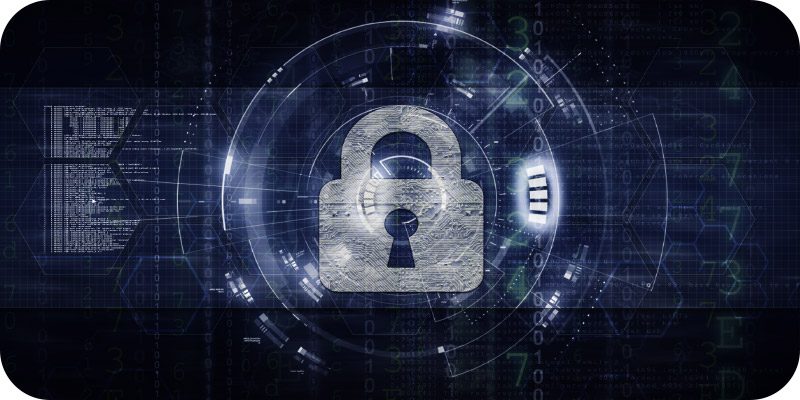What the AI Impact on Data Privacy Jobs Looks Like Right Now


Solutions Review’s Executive Editor Tim King highlights the overarching AI impact on data privacy jobs, to help keep you on-trend during this AI moment.
One of the most consequential ways AI is reshaping the data landscape in 2025 is through its impact on data privacy jobs. While data privacy has always been a high-stakes domain—balancing regulatory compliance, risk mitigation, and ethical stewardship—AI is now forcing a redefinition of what it means to protect sensitive information. From AI-powered data discovery to autonomous policy enforcement and synthetic data generation, the job of safeguarding personal and proprietary data is no longer confined to manual audits and policy checklists. It’s becoming smarter, faster—and in many cases—less human.
To keep pace with these radical shifts, the Solutions Review editors have broken down how AI is altering data privacy job functions, what professionals can do to remain indispensable, and what a future-proof privacy career might look like in an era of algorithmic governance and machine-scale data flows.
Note: These insights were informed through web research using advanced scraping techniques and generative AI tools. Solutions Review editors use a unique multi-prompt approach to extract targeted knowledge and optimize content for relevance and utility.
AI Impact on Data Privacy Jobs: How Has AI Changed the Data Privacy Workforce?
AI is reshaping the data privacy profession on every front—from how data is classified and governed to how violations are detected and prevented. What used to require privacy analysts to manually audit data flows, map personal data across systems, and enforce static policies is now being reimagined through intelligent automation and predictive analytics. But with this transformation comes a double-edged sword: while AI offers unprecedented efficiency and coverage, it also introduces new threats, new skill gaps, and a shifting regulatory landscape that demands faster adaptation.
Automated Data Discovery and Classification
One of the biggest shifts is in how sensitive data is discovered, cataloged, and classified. AI-powered discovery tools can scan vast data estates, identify personal or regulated data (like PII, PHI, or financial information), and tag it with metadata—often in real time. Platforms like OneTrust, BigID, and Immuta now use natural language processing (NLP) and machine learning to automate what used to be a tedious, error-prone task.
This has streamlined privacy compliance dramatically, especially under regulations like GDPR, CCPA, and HIPAA. But it also means that entry-level roles focused on manual classification, mapping, or audit prep are being phased out. Instead, the value is shifting toward roles that can configure, interpret, and validate these AI models—understanding not just where data is, but why it matters in a legal and ethical context.
Real-Time Monitoring, Alerts, and Policy Enforcement
AI is also changing the way policy violations and data misuse are detected. Behavioral analytics models now monitor data access patterns, flag anomalies, and trigger real-time alerts when privacy risks arise—whether it’s an employee accessing sensitive data outside business hours or a system suddenly exfiltrating more information than usual. Tools like Securiti.ai and Privacera use machine learning to enforce access policies dynamically, based on context and usage, rather than static roles or rules.
This is a seismic shift for privacy pros who previously relied on logs and periodic reviews to spot issues. The new paradigm demands fluency in privacy-aware AI configuration, incident triage, and the nuanced interpretation of algorithmic risk scores. It also raises a host of new questions about explainability, model bias, and the potential for false positives to erode trust across teams.
Synthetic Data and Privacy-Preserving AI
To reduce compliance risk while enabling data sharing and model training, organizations are increasingly turning to AI-generated synthetic data. These are artificial datasets designed to mimic real data without exposing real individuals. Privacy teams are now tasked with validating the fidelity, fairness, and regulatory soundness of synthetic data sets used across analytics, product development, and AI training.
This adds a whole new layer to the privacy role. Professionals must understand how generative AI works, how to assess reidentification risk, and how to audit synthetic datasets for compliance with global privacy laws. In some cases, data privacy experts are becoming the arbiters of whether AI models are trained responsibly—especially as regulators begin scrutinizing AI supply chains more closely.
Regulatory Intelligence and AI-Driven Compliance
The global privacy regulatory landscape is expanding rapidly—and AI is being deployed to keep up. Tools now track and interpret changes to regulations across jurisdictions using natural language processing, surfacing relevant updates and mapping them to internal policies. This helps privacy teams maintain continuous compliance without manually tracking hundreds of regulatory updates each year.
But again, automation doesn’t mean elimination. It means evolution. Professionals need to move beyond memorizing legal clauses to interpreting AI-curated guidance, tailoring it to organizational risk profiles, and translating it into practical workflows and controls. The focus is shifting from rote compliance to strategic governance and risk modeling.
A 2024 report by the International Association of Privacy Professionals (IAPP) found that 59% of organizations using AI in their privacy programs reduced time spent on manual audits by over 50%. However, 68% reported increased demand for staff with expertise in AI governance, data ethics, and cross-border compliance risk—a clear sign that new jobs are emerging even as old ones shrink.
The Rise of AI-Native Privacy Roles
As with data engineering, AI isn’t just replacing old workflows—it’s giving rise to new job titles and functions. We’re seeing the emergence of roles like “AI Privacy Engineer,” “Synthetic Data Analyst,” and “Algorithmic Risk Advisor.” These are professionals who can bridge the gap between data science and regulatory compliance, embedding privacy into the AI development lifecycle rather than bolting it on after the fact.
In the coming years, privacy experts who understand AI tooling—how models are trained, how drift occurs, how privacy-enhancing technologies (PETs) work—will become critical to organizational resilience. But it’s important not to get complacent: as AI matures, these roles too may become less technical and more strategic. Long-term relevance will hinge on the ability to think holistically about data ethics, stakeholder trust, and adaptive governance in a fast-changing world.
Upskilling for the AI-Privacy Future
If privacy is your domain, AI fluency is no longer optional—it’s essential. The new skill set requires a hybrid mindset: technical enough to grasp the mechanics of AI, but regulatory-savvy enough to steer its use responsibly. That means investing in:
AI governance and ethics: Learn how AI systems make decisions, where bias can creep in, and how to audit them for compliance with evolving standards.
Data anonymization and PETs: Become proficient in tools and techniques that balance data utility and privacy—like differential privacy, secure enclaves, and federated learning.
Synthetic data tools and validation: Understand how synthetic data is generated, when it’s appropriate to use, and how to validate it against legal standards.
Cross-functional communication: Privacy teams will increasingly work alongside data scientists, security pros, and business leaders. Clear communication and risk translation are key.
Global regulatory fluency: Stay current with the expanding patchwork of privacy laws—and learn how to leverage AI tools to maintain compliance dynamically.
For organizations, the best privacy teams of the future won’t just enforce rules—they’ll architect systems where privacy is a design principle. That means embracing AI not just as a compliance accelerant, but as a co-pilot in delivering trustworthy innovation.
AI Will Elevate Privacy Jobs—But Only for the Adaptive
If there’s one constant in the AI-privacy conversation, it’s this: the field is being elevated, but the bar is rising fast. AI will take over repetitive risk management tasks—but it will never fully automate judgment, context, or accountability. The privacy pros who thrive in this new era will be the ones who evolve from policy enforcers to strategic advisors and system architects.
The next three to five years will bring more change to data privacy than the previous two decades combined. But for those who lean in—who develop AI intuition, embrace complexity, and champion ethics in the machine age—the future is full of opportunity.
Bottom line: AI will automate the checklists, but it won’t automate your judgment. To future-proof your career in data privacy, become the voice of reason, foresight, and integrity in an increasingly automated world.

















